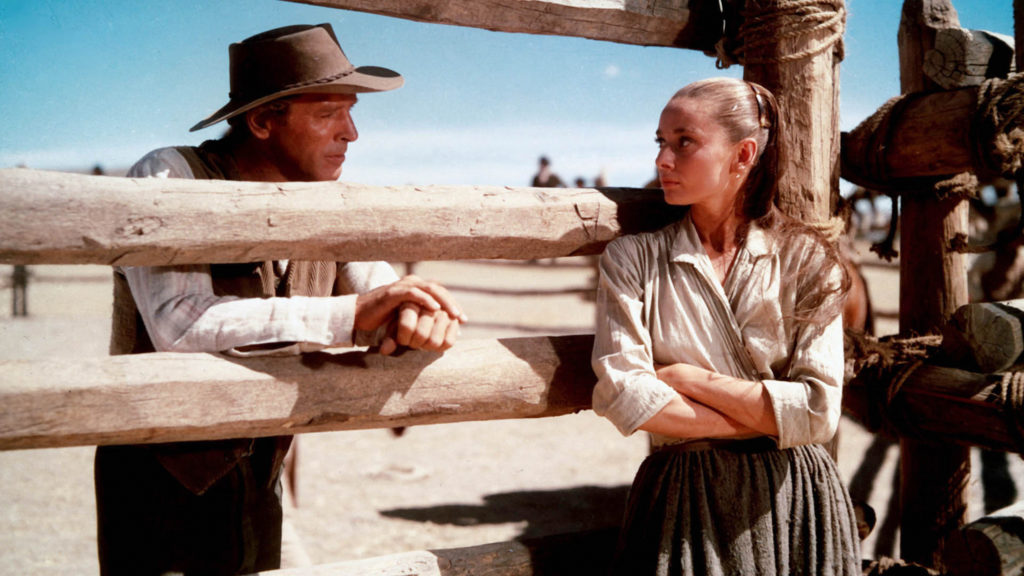
Ethan Edwards and Ben Zachary are not as akin as one may first perceive, they are as point counter point as the superstars who depict them, John Wayne as Edwards in The Searchers (1956) and Burt Lancaster as Zachary in The Unforgiven (1960). And each man working with a director with whom they had had past experience (John Huston re-wrote Lancaster’s debut The Killers on set).
InAn Open Book, The Unforgiven’s legendary director John Huston confesses that The Unforgiven is the least favorite of his films. It seems no wonder since United Artists restricted his artistic control (it is said Hecht-Hill-Lancaster needed another swashbuckler hit like The Crimson Pirate to survive) and liberalism when dealing with Native Americans (according to Lancaster biographer Gary Fishgall). In addition, the film’s female lead Audrey Hepburn fell from her horse during production. But beyond those behind the scenes tall tales, there is an inherent muckiness to The Unforgiven. It really has no clear feeling about any of the socio-political parties the film presents, instead it is indecisive, and focuses primarily on the sheer entertainment value it has been afforded with all the big name talent and money.
The Unforgiven is clearly a film about racists on the frontier who have committed horrible crimes against the Native people who now seek retribution. This plot point gives the film its initial action, providing an odd underdeveloped subplot in turn concerning Kelsey, who reveals Hepburn is really an adopted Indian. What occurs next is the most compelling and subversive part of Huston’s doomed western, Lancaster and Hepburn fall in love, embracing suppressed sexual anxieties for one another once restrained by the title of siblings. That point cannot be avoided since it is the one clear and believable motivation the Zachary family has to defend Hepburn from an onslaught of Indian attacks.
John Ford’s The Searchers embraces the same wild-eyed racism as The Unforgiven, but through no fault of studio executives like Richard Krim, but rather with intentional bravado as part of a wider commentary. This becomes something like treacherous ground since such political perspectives that conservative in regard to Native Americans were only widely accepted and popular before the sixties. So Ford’s film neglects the redeeming quality that a potential, though controversial, interracial couple emerges as in The Unforgiven, in favor for expressing his own, I’d assume, political views. That in mind, John Wayne’s character Ethan has more in common with the ghostly Indian hunter Kelsey in The Unforgiven than he does with Lancaster’s character. Ethan and Kelsey are obsessive, and controlled by their hatred of a race. They are also the only two white characters in the films that have initiated violence against the Native Americans.
Huston chose ambiguity for his film’s hero where Ford’s hero was much more defined, though with the sadistic flavor of George Wallace. This paradox does seem inevitable, since both directors exhibit the qualities of their heroes in life. Huston was a liberal and worldly man while Ford was a conservative and stern man, and their films reflect this. Neither however, seems to have fully grasped the situation within either narrative for the Native Americans. For the most part they are relegated to the cliché role of savages, the likes you see in any film before the “New Hollywood”.
It becomes something of a tragedy that neither man could explain the narrative situation without the character device of obsession; Wayne is obsessed with retrieving Natalie Wood, and the Indians with saving Audrey Hepburn from the white man in The Unforgiven. Both films are similarly flawed and equally naïve.
